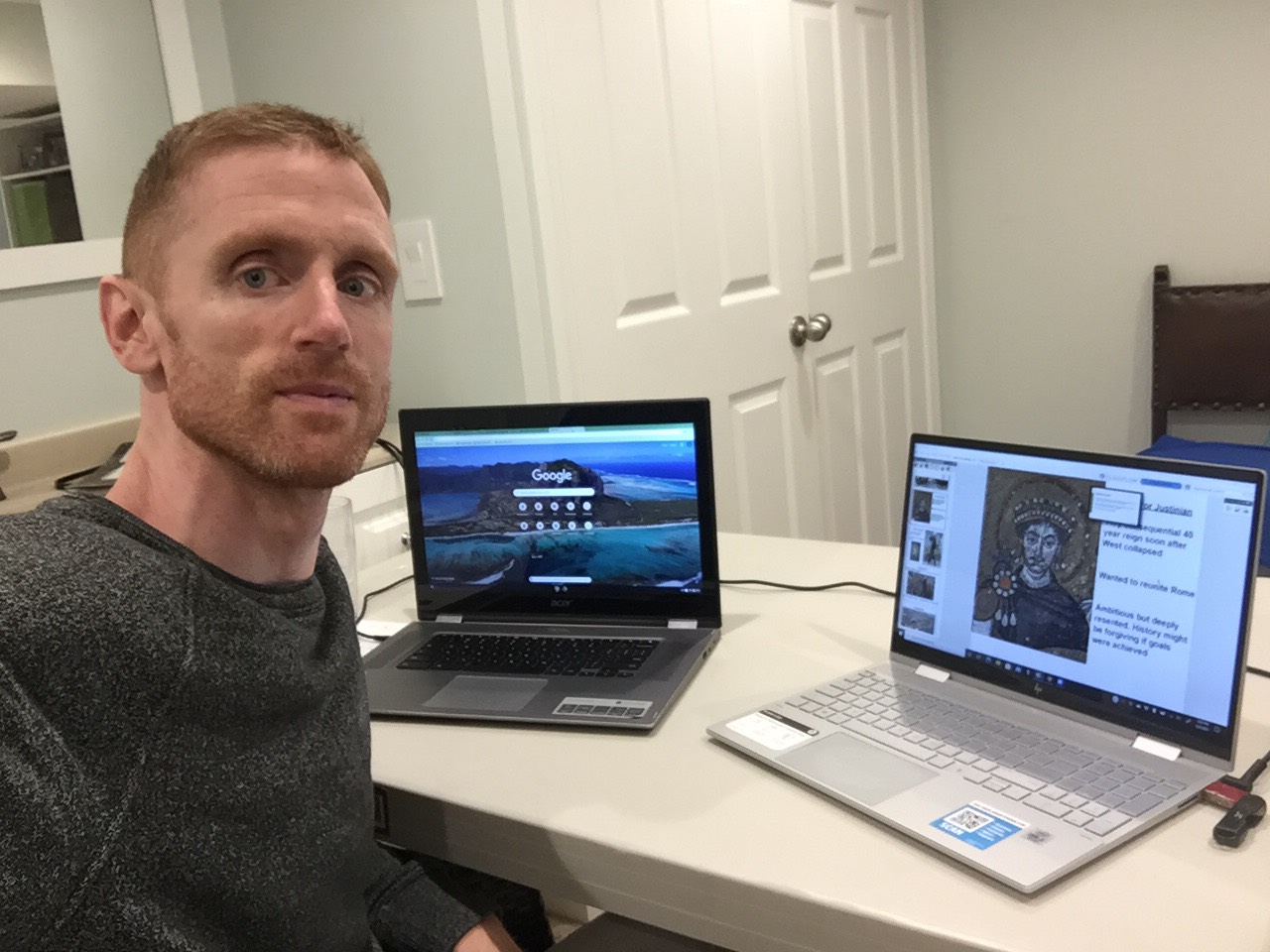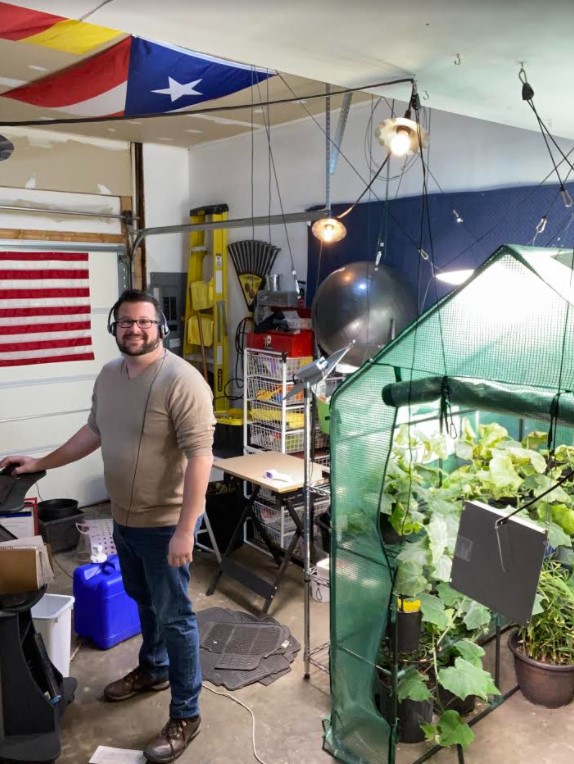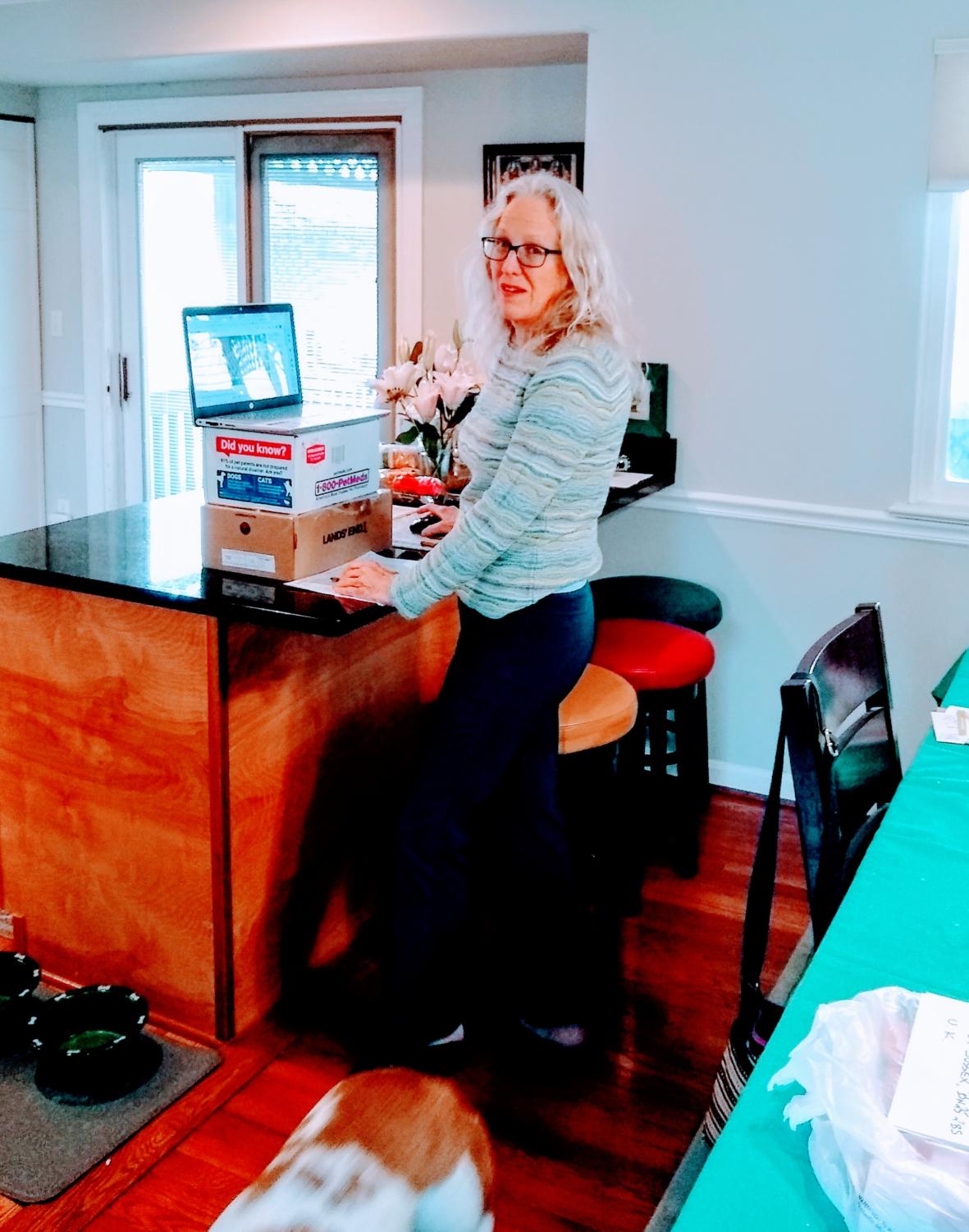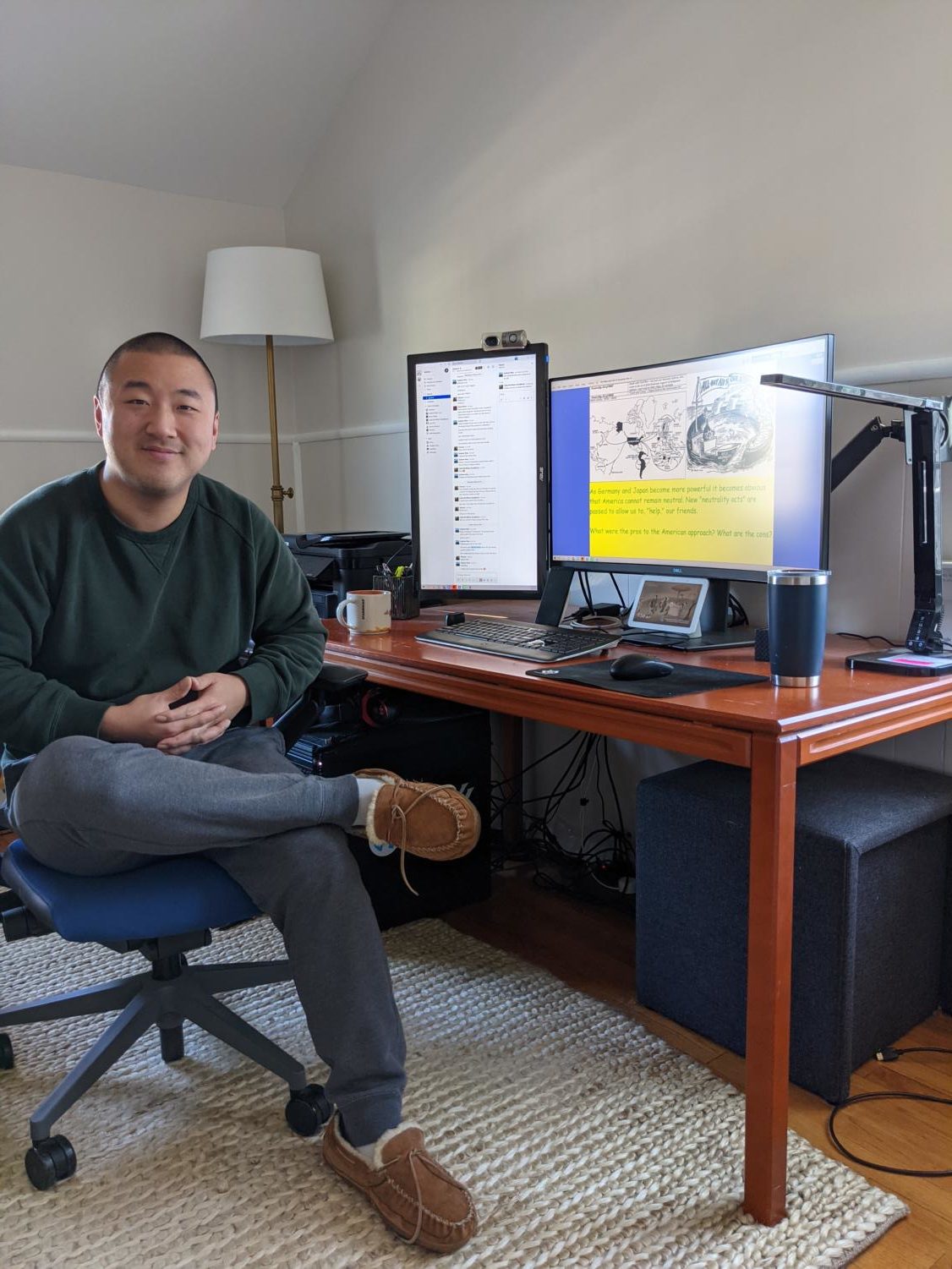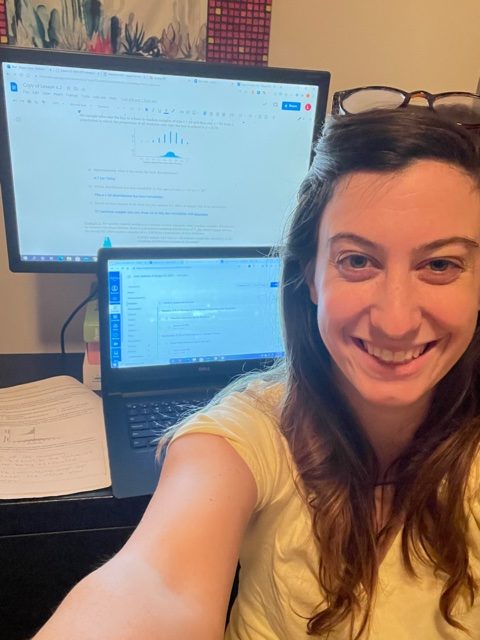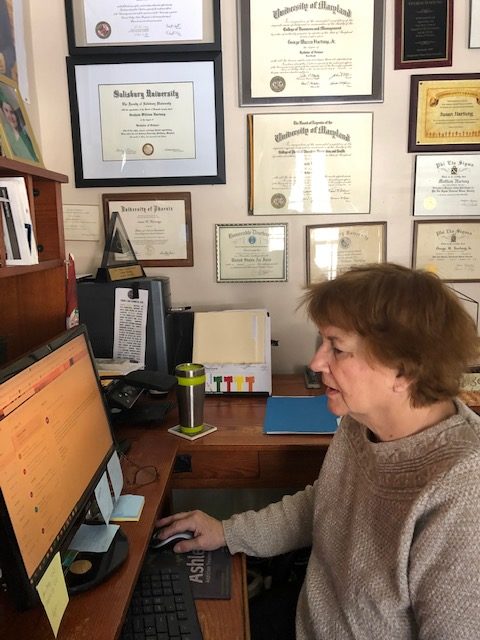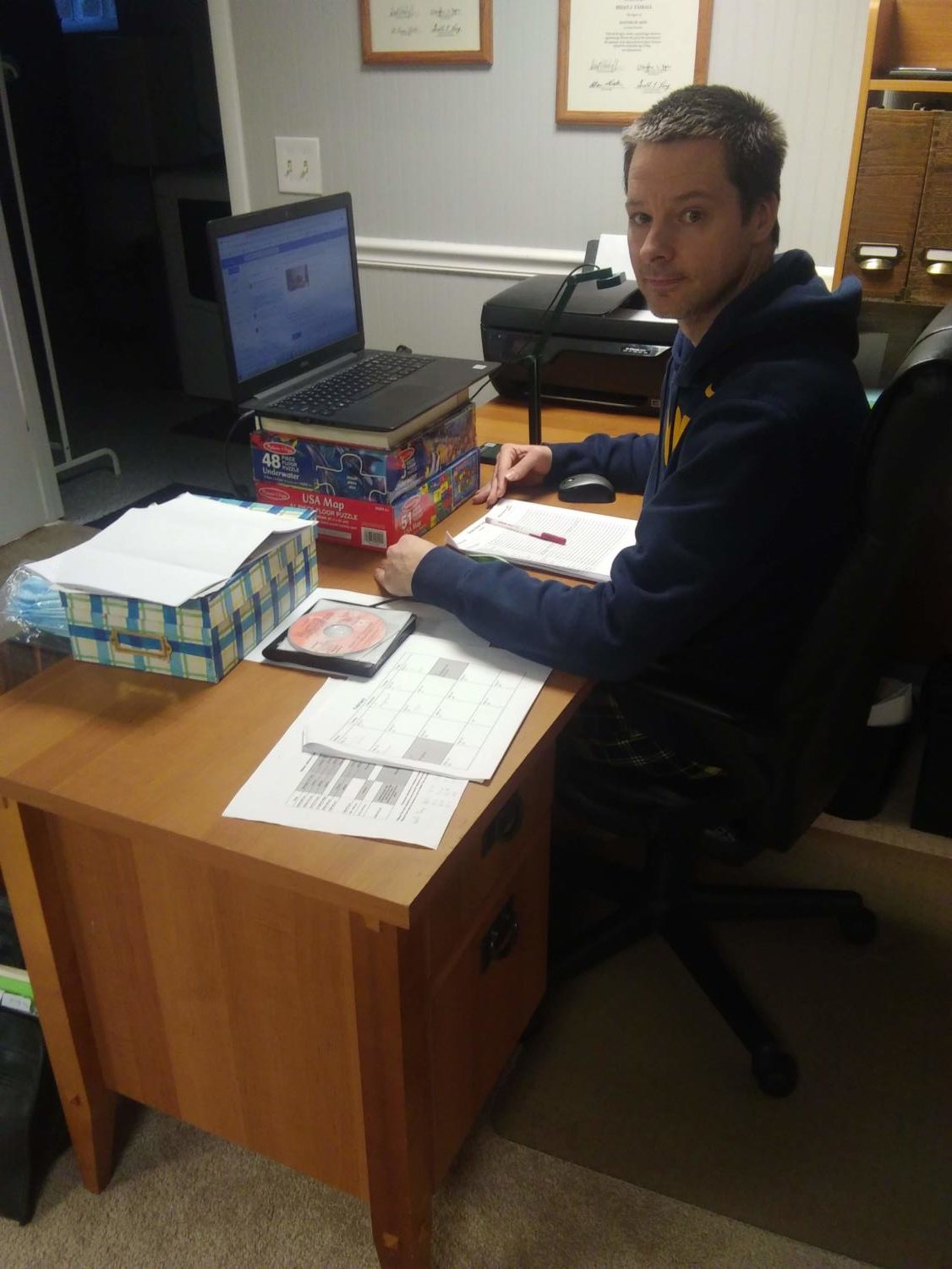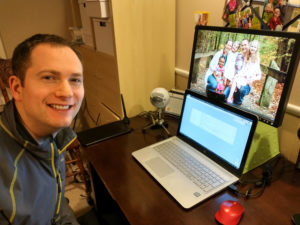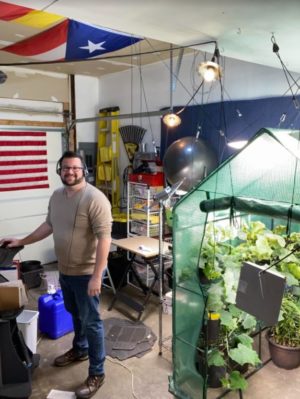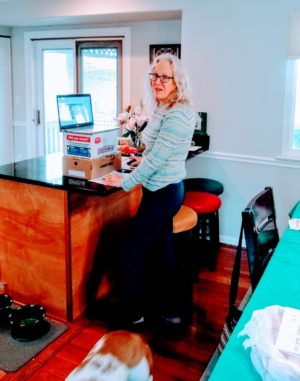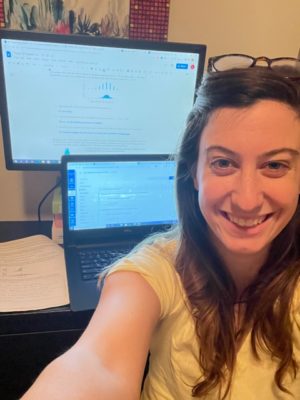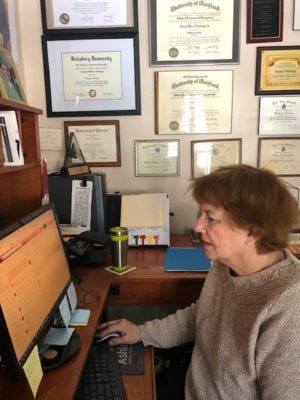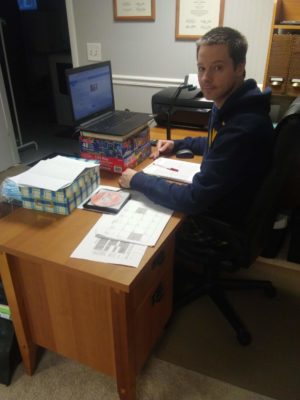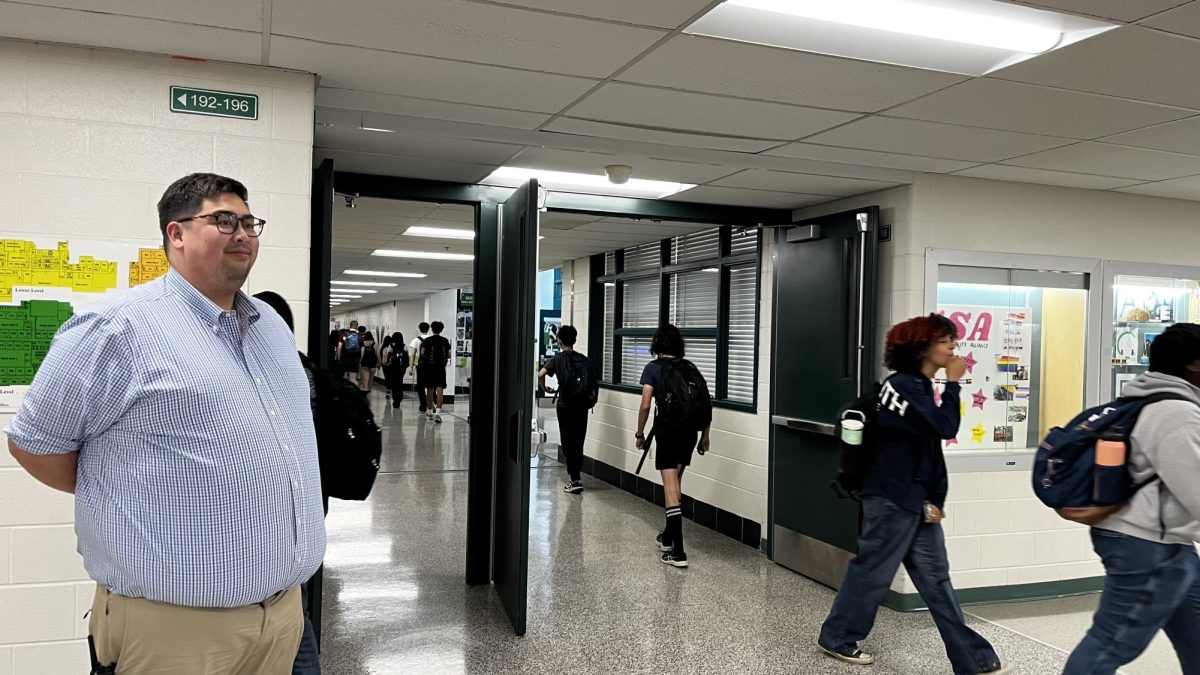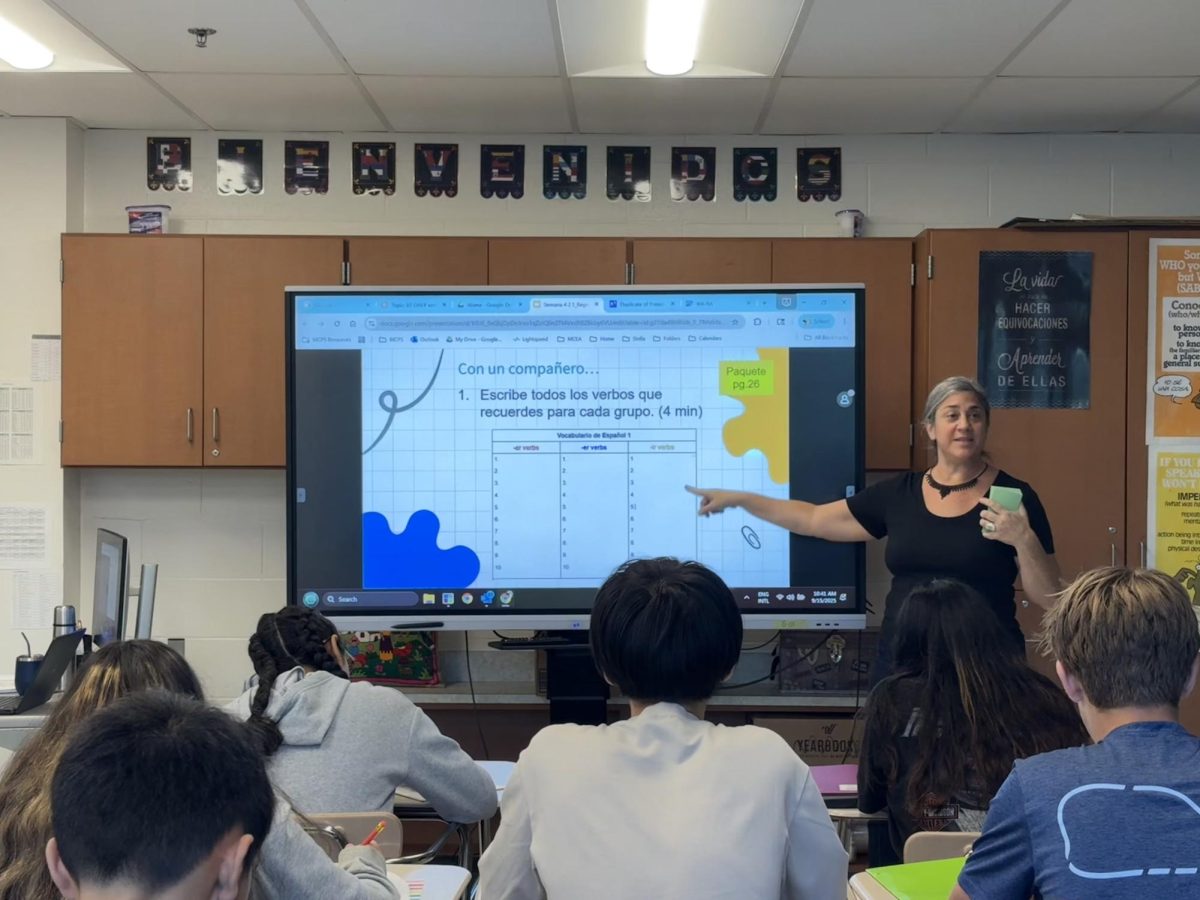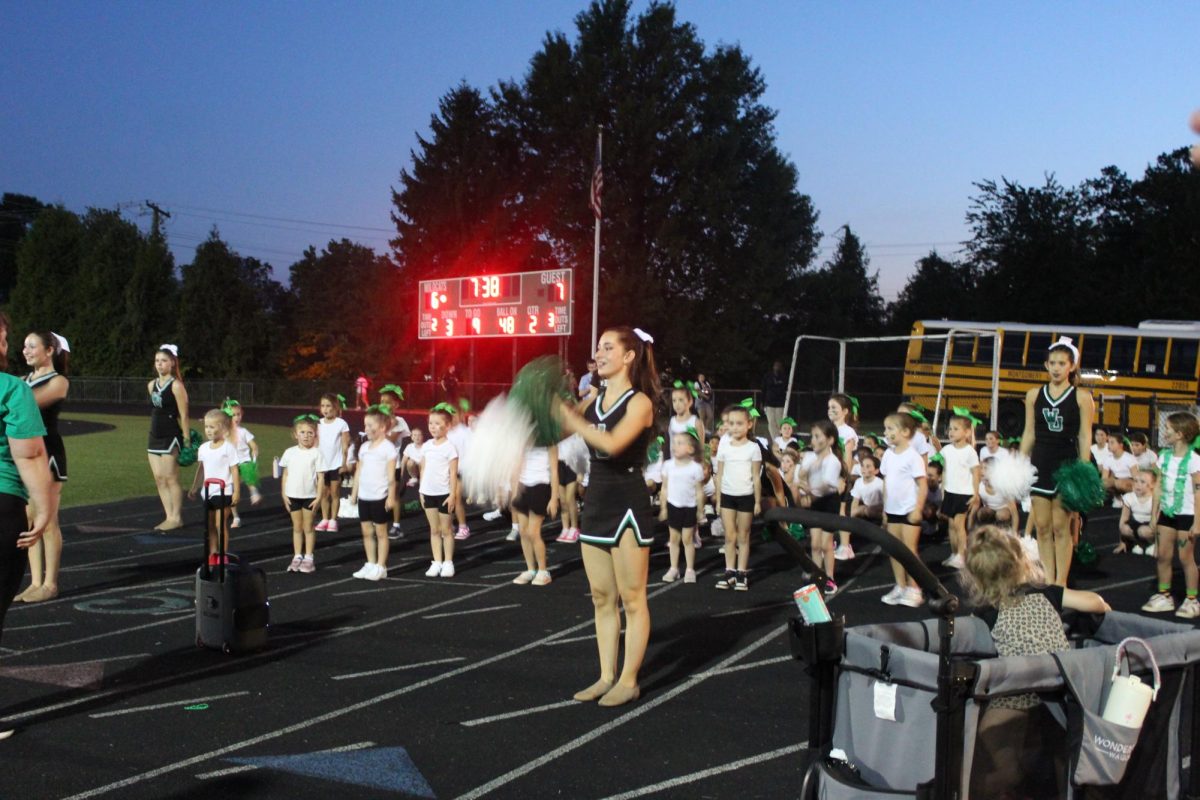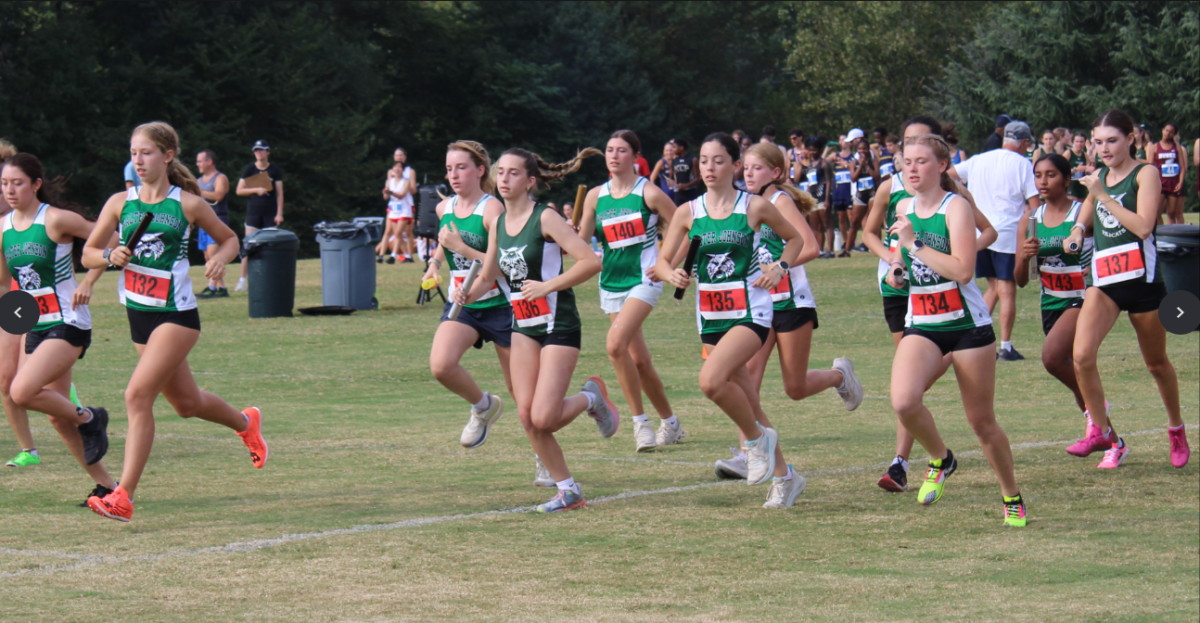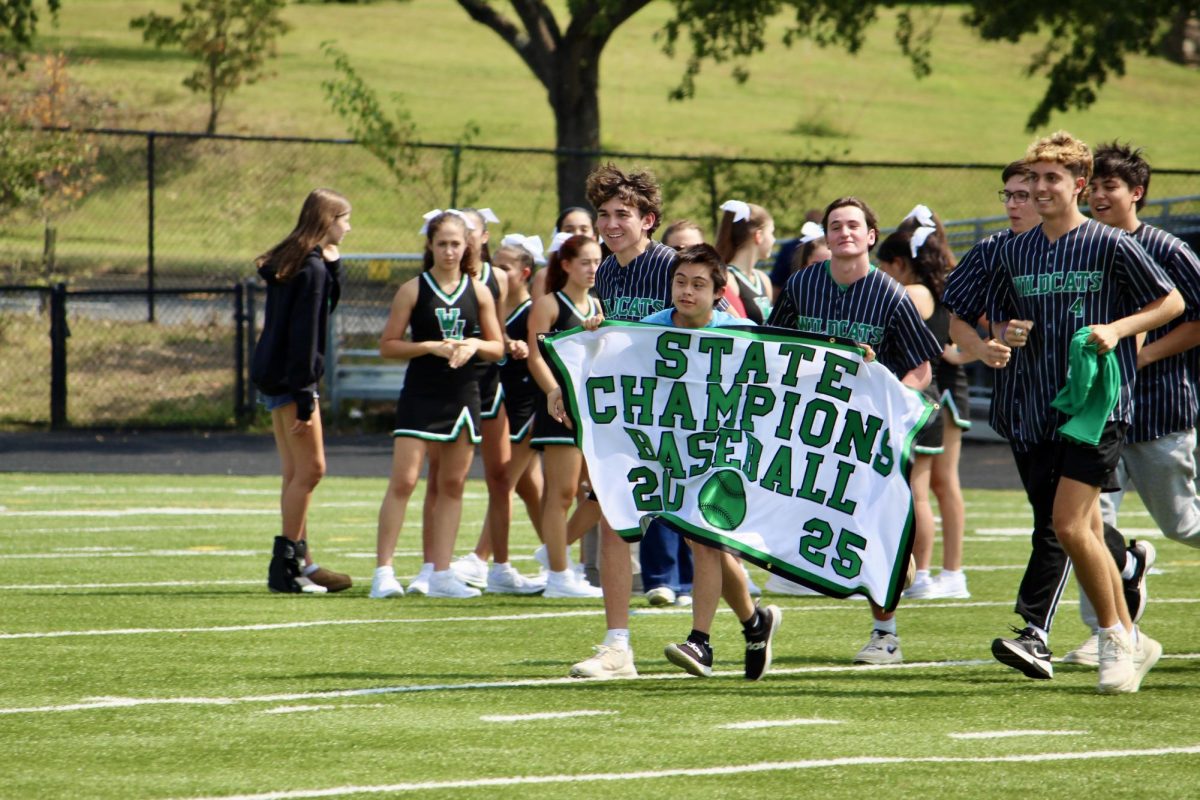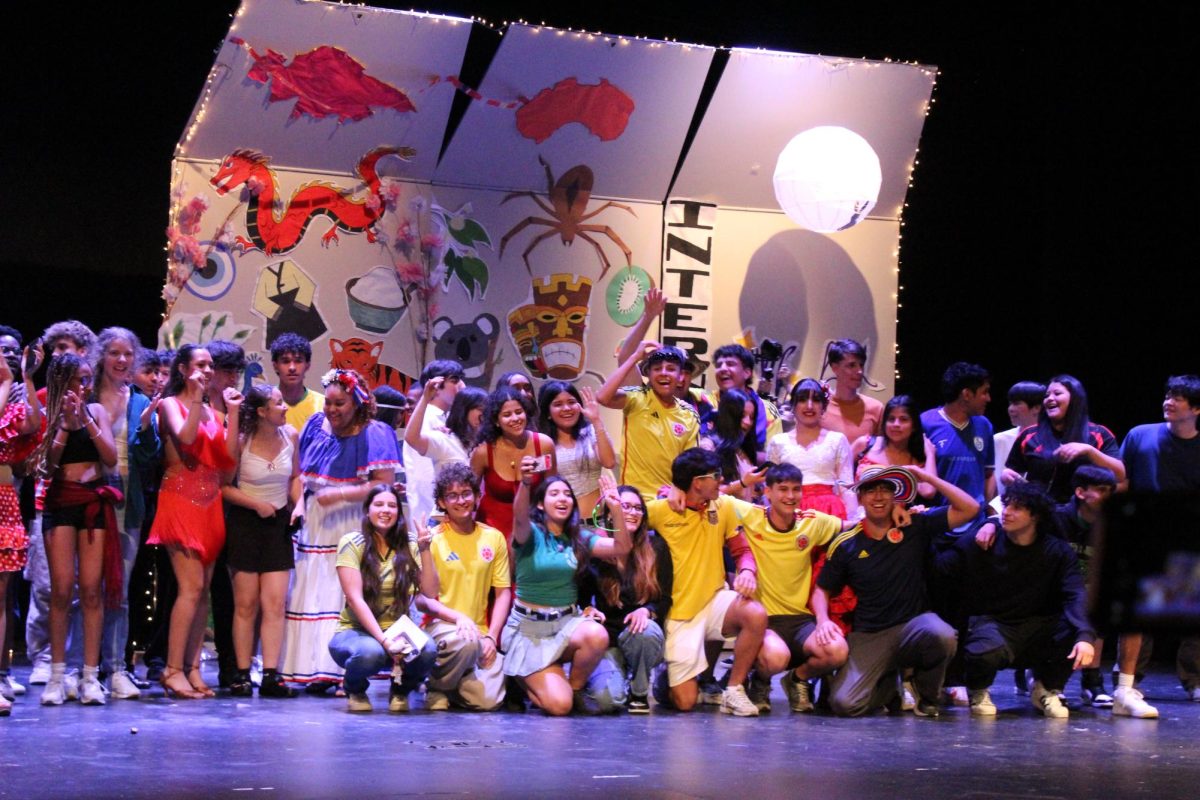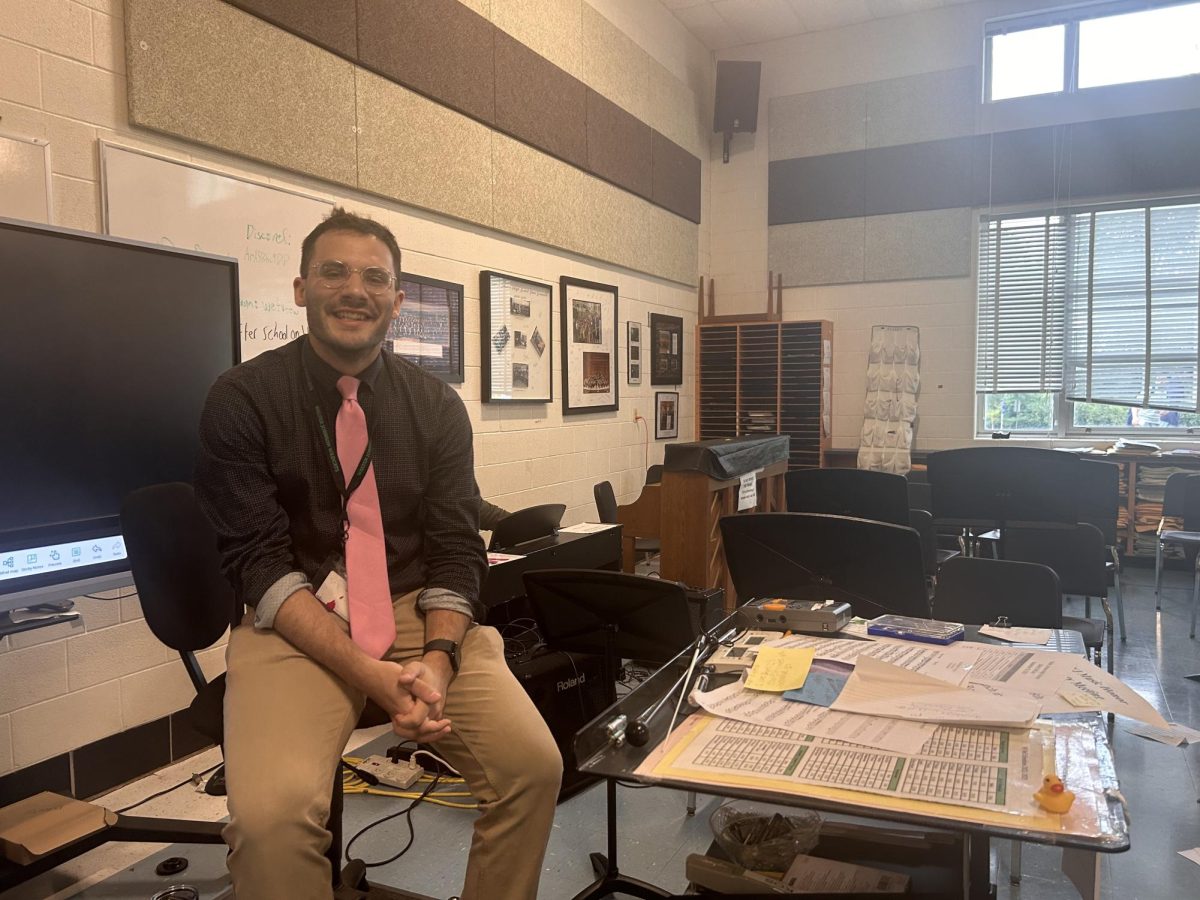For months on end, teachers have had to persevere through the bleak cloud that has cast over this school year. Black screens and lack of student participation are just the surface layer of the alterations inflicted on educators by virtual learning. Teachers have had to make numerous changes from the way they teach to how they interact with students.
A lot of high school teachers chose to teach because of the bonds they make with students through class. For many teachers, that is their favorite part of their profession. Student participation is more important to teachers than most think.
“One more big challenge for teachers that I should mention has been the lack of engagement of students, both in doing their work and also class participation. Teachers are used to pouring energy into their teaching and not getting an equal amount of energy back from students, but it’s even more draining than ever during the pandemic — it can be very depressing teaching a class of students when no one participates or has their camera on. This isn’t what anyone signed up for — students or teachers,” math teacher resource John Chase said. With classes now being held online, and students rarely turning their cameras on, it has become extremely difficult for teachers to create meaningful relationships with their students. During a regular year, teachers get to see their students and past students every day. But now with classes online, teachers see their students two days a week. And since students having their cameras on is optional, a teacher might only see a few students a day, if any at all. It is also strenuous for teachers to get their students engaged in lessons.
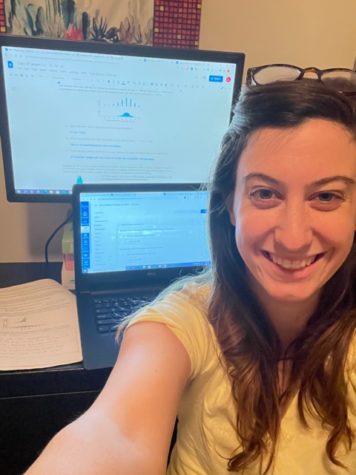
”Same as students probably… I love being able to wake up later than normal!” (Photo courtesy of Laura Brager) “The pressure to engage students has been really difficult. You see all of these posts about teachers being super creative with online learning, but honestly, it’s a lot of work just to put any sort of lesson together. And talking to myself for an hour straight (that’s what class feels like to me) is exhausting!” Brager said.
Without direct teacher supervision, it is very easy for students to get distracted or even leave their computers. The fact that they are in their rooms all day can also be very distracting. Calling on students and hearing no response has become a common issue for teachers. Additionally, while it is arduous for teachers to create lessons that keep students engaged, it is equally challenging to put together new lessons at all.
“Trying to condense a meaningful course into lessons that only meet twice a week is very challenging,” English teacher Susan Hartung said.
Teachers have had to take their traditional lessons and adapt them to the new online format. Additionally, they’ve had to abbreviate them. Teachers now only see each period twice a week, instead of five times a week. This means that they’ve had to take what they would teach weekly in five classes and summarize that information into two class periods. They are teaching a week’s worth of lessons in two-fifths of the usual time.
“First, having two classes a week instead of five means we have to condense information and try to make it reasonable for students to accomplish,” special education teacher Linda O’Reilly said.
Another grave obstacle teachers have had to deal with is the lack of support they’ve received from MCPS. Teachers have looked to MCPS for guidance on what to do during these perplexing times. However, MCPS has been indecisive and incomprehensive, adding a lot of weight to teachers’ shoulders.
“What has just completely crushed me is the sheer quantity of work that has been thrust at teachers with little guidance from the highest levels in the county. When MCPS detects a problem, their response is to always say “more” to the classroom level workers. And given the rapidly changing nature of things right now, we often have to make calls on the fly to try our best and deliver what we think MCPS might want…only to be told that’s wrong when they finally make a decision and we have to go back to the drawing board,” science teacher Brock Eastman said.
MCPS has been slow to make decisions and has not given teachers notice before releasing their plans to everyone.
“You [parents and students] know the moves MCPS has made during the pandemic at the exact same time we [teachers] have. It’s been maddening and creates an incredibly unstable environment for everyone,” Eastman said.
Teachers have received a lot of backlash online for not being prepared after new MCPS plans have come out. But in reality, teachers are learning what MCPS wants them to do at the same time as everybody else. This is largely why teachers have been painted by the media as unprepared and lazy.
“From reading the news and listening to certain politicians, there is a sense that teachers don’t want to come back into the building. This is not the case. We want to be teaching in person,” English teacher Marc Waldman said.
Being portrayed as lethargic and unprepared is a common misconception teachers face. In actual fact, most teachers are actually working harder than during usual years for many reasons.
“I know there will be people who scoff and mock regardless, but I am working SO much harder than I would be with in-person learning. Ask my students, they’ll tell you the timestamps on some of those emails, it’s nuts. Our [teachers] desire to not get infected and spread this virus to our families has painted us as this powerful, obstructive group who just love staying home and lazily talking to kids on Zoom. I’m used to society at large belittling my profession, but the furor of some people I’ve seen online toward teachers has been beyond the pale during the pandemic. I’m never going to forget it,” Eastman said.
Through struggling to communicate with students and having to condense lessons, many teachers feel they are working harder than during normal years.
“Every task that used to take a minute now takes five. Multiply that across all the many small things we do behind the scenes and it adds up,” resource teacher Andrew Won said.
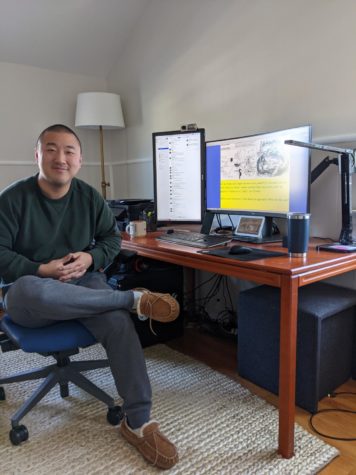
“Weirdly enough I think it is easier to meet with parents/students for conferences. Since we are meeting at Zoom I can meet pretty much whenever. This allows me to meet with parents in the afternoon/evening or even on the weekends.” (Photo courtesy of Andrew Won)
But despite the undermined travails teachers face, learning has continued. MCPS is still in the online-learning phase with plans to go back to in-person learning set for a month from now. Many teachers, however, feel they are still getting through to students despite being online.
“I think learning is still taking place for the students who are coming to class regularly and actually paying attention during class. People just assume that kids aren’t learning anything. I have received enough feedback from students saying that they have actually learned a ton this year,” math teacher Brian Fairall said.
Teachers have had to overcome many challenges that schooling online has presented. But through tiresome toiling, teachers have prevailed. Online school, although challenging for many, has endured.
“I miss seeing students I don’t teach anymore. I used to see them in the mornings, walking down the hall, or when they came to visit me. Now I only see the small subset of students that I teach directly,” Won said.



